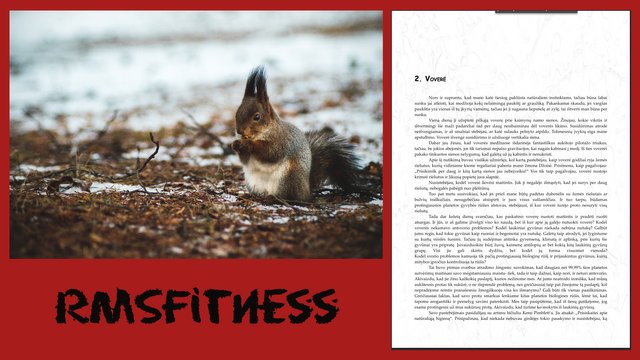LEARNING FROM NATURE
It’s funny how the most everyday occurrences can trigger
the most important discoveries. Isaac Newton had his
moment of inspiration when an apple fell from a tree. For
me, it was a squirrel that provided the crucial piece of
evidence that enabled me to discover the secret of weight
control
There was nothing unusual about a squirrel coming into
my garden. We had daily visits, encouraged by the
peanuts that my wife Joyce would generously scatter on
the patio. We always enjoyed watching it performing
fantastic acrobatics, its agility being a constant source of
wonder. Our cat was fascinated too, albeit for different
reasons.
I find it difficult to love my cat when she’s hunting some
small, hapless animal. It’s bad enough when it’s one of
those strident starlings, but when it’s a robin or a blue-tit
I find it impossible. On one occasion I watched as she
crept up and cornered a squirrel against the wall of the
neighbour’s house. I couldn’t see any way out for the
squirrel without a fight, and watched with interest to see
how the cat would fare against this tough and nimble
opponent. The squirrel simply turned and ran up the
vertical wall.
A few days later I looked out of the window and saw the
squirrel sitting on the patio, happily eating the nuts that
Joyce had put out. My mind went back to the incident
with the cat and I thought to myself, “Eat too many of
those and there’s no way you’ll be able to climb the wall
next time!” As if it had read my mind, the squirrel
immediately stopped eating the nuts and started burying
them.
I couldn’t stop wondering why the squirrel had chosen
to stop eating and start storing. If Joyce had put a bowl of
peanuts in front of me, I would have scoffed the lot. I was
aware that gorging myself on snacks wasn’t doing my
figure any favours – so what? I wasn’t planning to rush up
any vertical walls in the foreseeable future.
But there was something I couldn’t understand: if I
couldn’t stop eating, how could the squirrel? Here was I,
a member of the most intelligent species on the planet,
being outsmarted by a mere rodent.
For several days I found myself pondering what I had
witnessed in the garden. I had no problem understanding
the squirrel’s behaviour; anyone could see the sense in
keeping some food back for later if you’re a creature that
can never be sure where your next meal is coming from.
But how could the squirrel see that? How could an animal
with a brain not much bigger than the nuts it was eating
have the foresight to stop eating when food was abundant
and store it away for later? Did it know that if it overate it
wouldn’t be able to scale the wall to escape the cat in
future? Was that why it didn’t have a weight problem?
The picture started to become clearer in my mind when
I realised that not only had I never seen a squirrel with a
weight problem, I had never seen a wild animal of any
species that was overweight. Sure, there are animals like
walruses and hippos that seem fat, but that’s the shape
that Nature intended. It suits their lifestyle and the environment in which they live. I have never seen a
walrus or hippo that is distinctly overweight compared to
the rest of the herd.
Think of the amazing images we see of animals in large
groups. It could be a school of fish, a herd of water
buffalo, a flock of geese. Their individual sizes may differ,
but they’re all the same shape, the same proportion.
There are none that lag behind the others, weighed down
by an oversized belly caused by overeating.
If you found it useful, please, consider donating- Thank you.
https://www.patreon.com/rmsfitness
or Paypal
https://paypal.me/rmsbodybuilding?locale.x=en_GB
